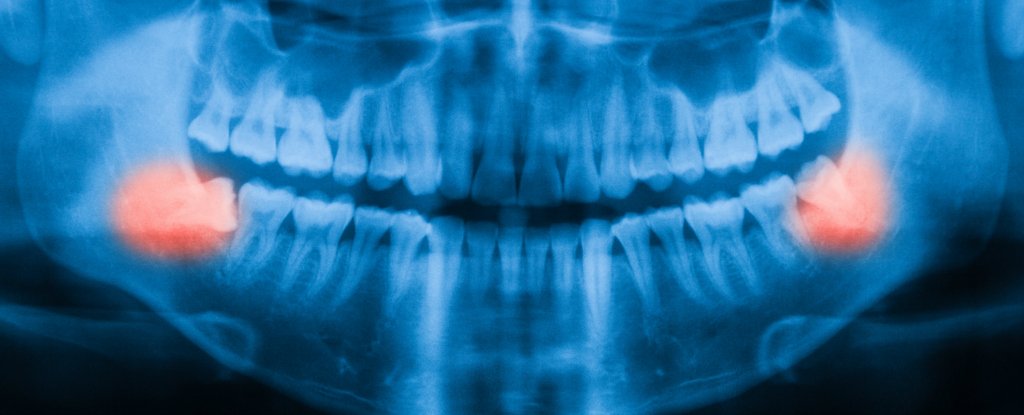Wisdom teeth: funny name, funny teeth, sometimes not so funny to have.
So, what are wisdom teeth and why do you have them?
It is thought wisdom teeth got their name because, with age comes wisdom (and wisdom teeth). Wisdom teeth are the third and last set of molars to arrive. They erupt in the mouth between the ages of 17 and 24. Since they are the last set of teeth to arrive, they commonly come in misaligned and require removal. Some wisdom teeth may develop fully in the jaw, but they almost never fully appear in the mouth.
When your teen comes into my office for a routine checkup, I generally like to take an X-ray, particularly a panorex (an X-ray that shows the development of all teeth in the jaw and surrounding structures) so we can better inform you of tooth eruption patterns and problems. This often reveals the need for orthodontic treatment, oral surgery visits or even the removal of the wisdom teeth. But where are these wisdom teeth in the mouth?
In quick reference to the teeth - the incisors (front teeth) are used to "cut" food, the canines or dog teeth (the pointy front teeth) are pre-molars (used to help tear food) and the molars (the back teeth) are used for grinding or chewing your food. Sounds kind of prehistoric, doesn't it? We have a total of 32 teeth, should all our teeth be present in our mouth, though some individuals may have some missing or extra teeth.
Wisdom teeth are sort of an evolutionary throwback. It is presumed that the coarse diet of early humans required more chewing of unrefined foods, causing more growth stimulation of the jawbone and more room for the wisdom teeth to erupt. Let's face it: Our ancestors were some pretty tough cookies.
But when these ancestors started cooking and foods became softer, the wisdom teeth had more trouble surfacing for lack of use and space. This is an interesting theory suggesting that the size of our mouths has decreased over thousands of years and our jaws don't have to be as big or strong as in prehistoric times.
Other theories also emerged as to why wisdom teeth don't fit in many people's mouths. Some believe that genetics has a part. You may have inherited the large teeth of one of your parents and the other parent's small jaw.
When there is not enough room for your wisdom teeth, they often become what we call impacted, or partly trapped in the jawbone and gum area. Your wisdom teeth may become a problem as you age because their development spans several years. A wisdom tooth can grow horizontally, vertically or possibly toward or away from your other teeth. When this occurs, it is far better to get them removed early to prevent more serious conditions and before they have a chance to firmly anchor in your jaw as the teeth grow and the roots lengthen.
I encourage you to take preventive measures before that occurs. It is much easier to remove the wisdom teeth while you are a young adult rather than after age 25 because of quicker healing and the fact the teeth aren't as fully developed.
Your dentist will address your wisdom teeth issue so that you won't have these gradual changes causing sudden discomfort or severe pain. These symptoms include frequent swelling and tenderness of the gum tissue surrounding the third molar area, limited mouth opening and bad breath or an unpleasant taste in the mouth. They can also cause gum disease, crowding, decay, poor position and cysts.
Symptoms start with ill-defined pain around the lower jaw, an earache, a stiff jaw or limited mouth opening. These symptoms are easily treated with antibiotics, but they tend to recur unless the wisdom teeth are removed.
For a lucky few, there may be no symptoms or pain at all. But the one fact that I can assure you about wisdom teeth is this: They have nothing to do with the amount of wisdom you have obtained in life. Don't you feel smarter already?






